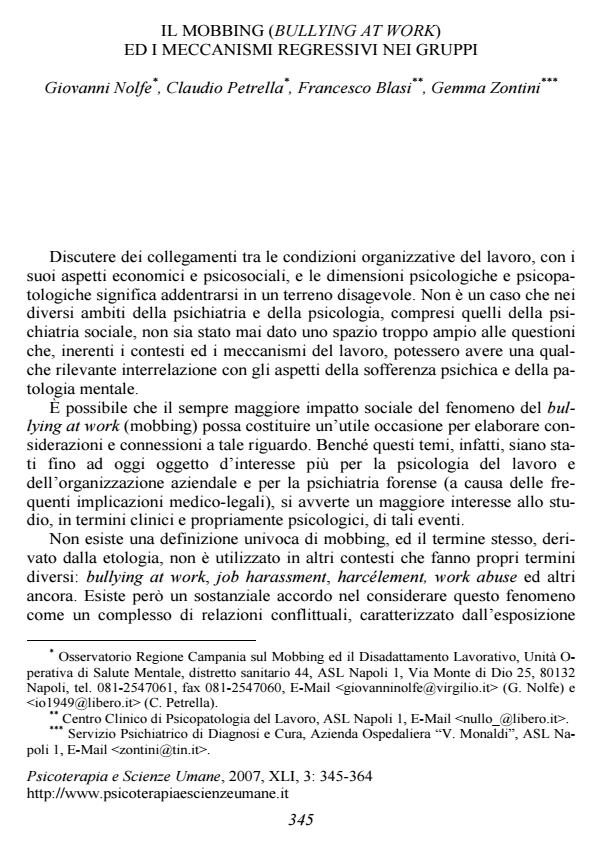Il mobbing (bulling at work) ed i meccanismi regressivi nei gruppi
Titolo Rivista PSICOTERAPIA E SCIENZE UMANE
Autori/Curatori Giovanni Nolfe, Claudio Petrella, Francesco Blasi, Gemma Zontini
Anno di pubblicazione 2007 Fascicolo 2007/3
Lingua Italiano Numero pagine 20 P. 345-364 Dimensione file 170 KB
DOI
Il DOI è il codice a barre della proprietà intellettuale: per saperne di più
clicca qui
Qui sotto puoi vedere in anteprima la prima pagina di questo articolo.
Se questo articolo ti interessa, lo puoi acquistare (e scaricare in formato pdf) seguendo le facili indicazioni per acquistare il download credit. Acquista Download Credits per scaricare questo Articolo in formato PDF

FrancoAngeli è membro della Publishers International Linking Association, Inc (PILA)associazione indipendente e non profit per facilitare (attraverso i servizi tecnologici implementati da CrossRef.org) l’accesso degli studiosi ai contenuti digitali nelle pubblicazioni professionali e scientifiche
Mobbing (bullying at work) and regressive mechanisms in groups. ABSTRACT: The diffusion of work-related psychiatric pathologies represents an emerging phenomenon in clinical practice. While the contributions of work-related medicine and psychology are rather numerous, the contributions referring to psychiatry and clinical psychology are still relatively rare. This paper tries to apply psychodynamic concepts to the phenomenon of mobbing by integrating them with contributions and reflections coming from the fields of economic, sociological and psychosocial research. Wilfred R. Bion’s theory of regression in groups and Otto F. Kernberg’s contributions are particularly emphasized. Some aspects of the so called new economy are discussed, mainly concerning their implications for the development of identity processes of individuals and for the psychology of groups. [Key words: mobbing (bullying at work), psychodynamic dimensions, psychosocial dimensions, regressive mechanisms, scapegoat]
Giovanni Nolfe, Claudio Petrella, Francesco Blasi, Gemma Zontini, Il mobbing (bulling at work) ed i meccanismi regressivi nei gruppi in "PSICOTERAPIA E SCIENZE UMANE" 3/2007, pp 345-364, DOI: